Afficher Davantage

Afficher davantage
More Posts from Lune-versatile and Others




Read that marimos can get sick from receiving too much light, but this man of sunshine is only making them love sick.
i know it’s been said before, but it bears repeating: a big, big part of maintaining your confidence & self esteem as a creator is fully embracing the concept of “you don’t have to be good like them. you can be good like you.”
for example, i’m not someone who’s particularly good at coming up with complex, elaborate plots or incredibly unique ideas. it’s just not how i choose to write. and it would be easy for me to look at someone with an elaborate, super unique plot & decide that because i don’t write like that, i’m not a good writer. after all, unique plots are good, and my writing lacks those, so my writing must not be good, right? well, no, actually. i just have different strengths, like taking a simple premise & digging super deep into its emotional depths. that’s what i do well & it isn’t any better or worse than people who do elaborate world building or come up with really creative and unexpected plots.
your writing is never going to be all things to all people. it just isn’t. inevitably, you’ll have to make creative choices that favor certain aspects of writing over others. there is truly no getting around that & it’s honestly a good thing, because it means you’ve developed your own style. but you’ll always encounter other creators who posses strengths that you don’t. it doesn’t mean one is better than the other or that your writing isn’t good enough.
comparing yourself like that would be like taking a piece of pizza & a cupcake & going “oh no, that cupcake is so sweet & my pizza isn’t sweet at all.” or “gosh, the garlic crust on that pizza is delicious and my cupcake doesn’t have ANY garlic.” obviously your pizza isn’t sweet. obviously your cupcake doesn’t have garlic. a food can’t have every single delicious flavor at once. the cupcake is good like a cupcake. the pizza is good like a pizza. so you don’t have to be good like them. you can be good like you.
Can you hear your characters?
I have a whole lot of trouble making my dialogue sound natural if I don’t know what my characters sound like. Having a strong sense of their voice can help distinguish your characters from each other, show their personalities, and make them more engaging to readers.
Here’s some details to think over if you’re trying to nail down a character’s voice:
Speed
Pitch
Volume
Accent
Vocabulary
Amount spoken
Willingness to speak
Stutters
Hesitations
Repetitions
Quirks
Common phrases
Other questions to ask:
Do their voices or the way they talk change depending on who they’re talking to or the situation they’re in?
How can their personality come through their voice? Their sarcasm, empathy, awkwardness, etc.
What in their backstory contributes to the way they talk?
When they make a statement, how often does it come off as unsure or questioning, versus confident and factual?
How does their voice relate or coexist with their body language?
hey do you have any tips on how to write surreal horror (mostly short stories?) it's a genre that i've really been interested in trying to write, but i'm not too sure how to go about it (and thanks for providing such a useful blog :D)
I love surreal horror.
Okay.
Plot twists are your best friend. Do the unexpected. Do a 180 last second, turn everything around on the reader. Obviously it has to be believable with in the context of the story, but keep it a surprise.
False sense of security? Works wonders. Nothing is safe. Let readers think something is good/pure/innocent/calm/safe/helpful/etc when it’s not. Lure them into that trap. Let them believe and then rip it away from them.
Invert things. Similar to the false sense of security. Take things that are usually strongly associated with one thing, and associate it with the opposite. Take something dark and make it the good thing. Take something bright and make it evil. Take something sweet and make it bitter. Take something healthy and make it deadly. If you do it right, you can make the reader curiously uncomfortable.
With surreal horror you want to shock your reader. You want to make them feel strangely uncomfortable. You want to make them question things.
Hope that helps :)
how to start reading again
from someone who was a voracious reader until high school and is now getting back into it in her twenties.
start with an old favourite. even though it felt a little silly, i re-read the harry potter series one christmas and it wiped away my worry that i wasn't capable of reading anymore. they are long books, but i was still able to get completely immersed and to read just as fast as i had years and years ago.
don't be afraid of "easier" books. before high school i was reading the french existentialists, but when getting back into reading, i picked up lucinda riley and sally rooney. not my favourite authors by far, but easier to read while not being totally terrible. i needed to remind myself that only choosing classics would not make me a better or smarter person. if a book requires a slower pace of reading to be understood, it's easier to just drop it, which is exactly what i wanted to avoid at first.
go for essays and short stories. no need to explain this one: the shorter the whole, the less daunting it is. i definitely avoided all books over 350 pages at first and stuck to essay collections until i suddenly devoured donna tartt's goldfinch.
remember it's okay not to finish. i was one of those people who finished every book they started, but not anymore! if i pick up a book at the library and after a few chapters realise i'd rather not read it, i just return it. (another good reason to use your local library! no money spent on books you might end up disliking.)
analyse — or don't. some people enjoy reading more when they take notes or really stop to think about the contents. for me, at first, it was more important to build the habit of reading, and the thought of analysing what i read felt daunting. once i let go of that expectation, i realised i naturally analyse and process what i read anyway.
read when you would usually use your phone. just as i did when i was a child, i try to read when eating, in the bathroom, on public transport, right before sleeping. i even read when i walk, because that's normally a time i stare at my screen anyway. those few pages you read when you brush your teeth and wait for a friend very quickly stack up.
finish the chapter. if you have time, try to finish the part you're reading before closing the book. usually i find i actually don't want to stop reading once i get to the end of a chapter — and if i do, it feels like a good place to pick up again later.
try different languages. i was quickly approaching a reading slump towards the end of my exchange year, until i realised i had only had access to books in english and that, despite my fluency, i was tired of the language. so as soon as i got back home i started picking up books in my native tongue, which made reading feel much easier and more fun again! after some nine months, i'm starting to read in english again without it feeling like a huge task.
forget what's popular. i thought social media would be a fun way to find interesting books to read, but i quickly grew frustrated after hating every single book i picked up on some influencer's recommendation. it's certainly more time-consuming to find new books on your own, but this way i don't despise every novel i pick up.
remember it isn't about quantity. the online book community's endless posts about reading 150 books each year or 6 books in a single day easily make us feel like we're slow, bad readers, but here's the thing: it does not matter at all how many books you read or what your reading pace is. we all lead different lives, just be proud of yourself for reading at all!
stop stressing about it. we all know why reading is important, and since the pandemic reading has become an even more popular hobby than it was before (which is wonderful!). however, there's no need to force yourself to be "a reader". pick up a book every now and then and keep reading if you enjoy it, but not reading regularly doesn't make you any less of a good person. i find the pressure to become "a person who reads" or to rediscover my inner bookworm only distances me from the very act of reading.
any tips on how to keep myself motivated on my WIP and not totally abandon it? 🥲
I have a whole Motivation master list, but here are some particular posts that might help:
5 Reasons You Lost Interest in Your WIP, Plus Fixes! Guide: How to Rekindle Your Motivation to Write Getting Excited About Your Story Again Feeling Unmotivated with WIP Getting Unstuck: Motivation Beyond Mood Boards & Playlists Getting Your Writing Magic Back After a Break
Happy writing!
•••••••••••••••••••••••••••••••••
I’ve been writing seriously for over 30 years and love to share what I’ve learned. Have a writing question? My inbox is always open!
Learn more about WQA
See my ask policies
Visit my Master List of Top Posts
Go to ko-fi.com/wqa to buy me coffee or see my commissions
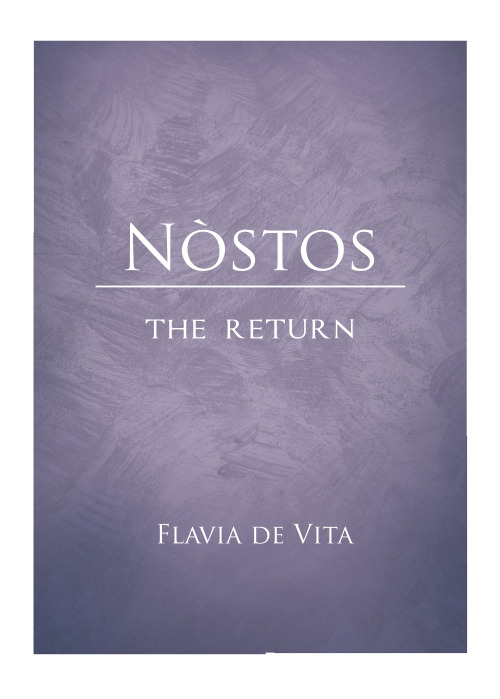
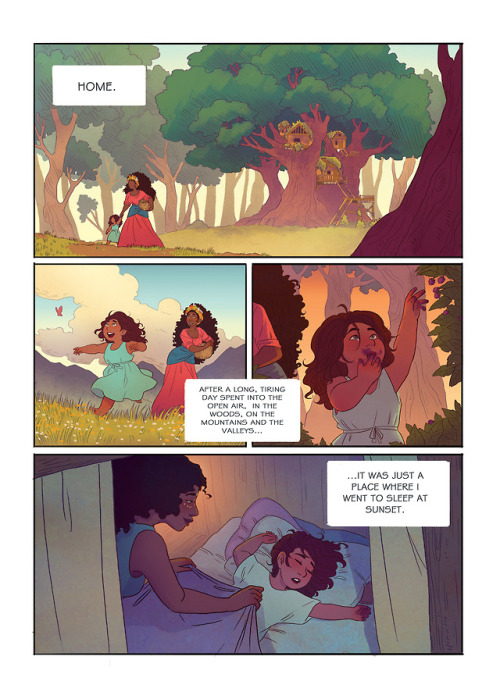
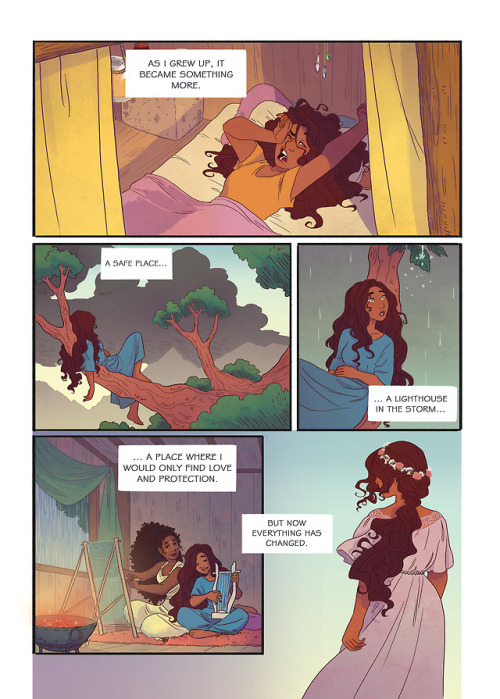
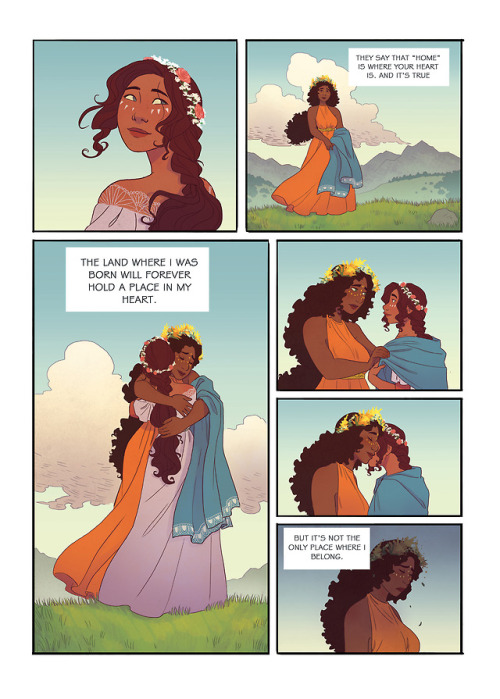
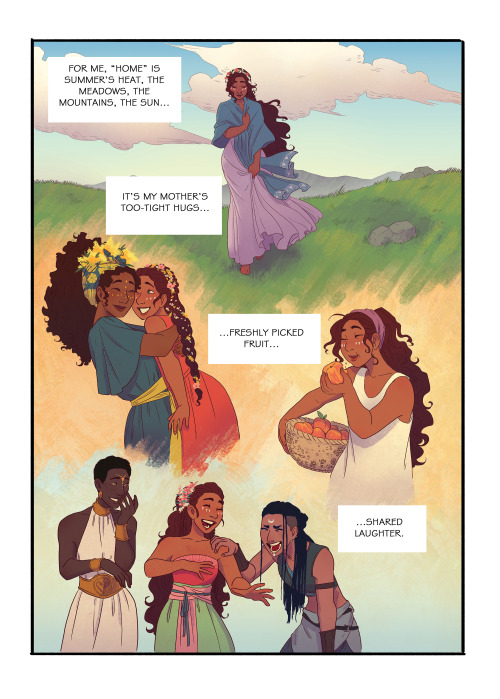
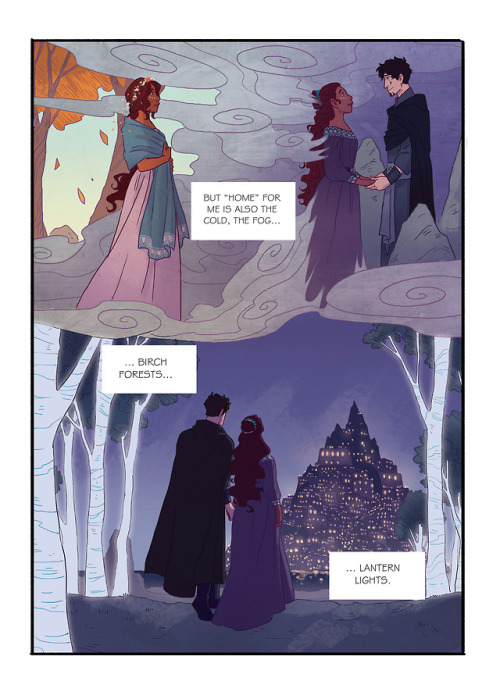
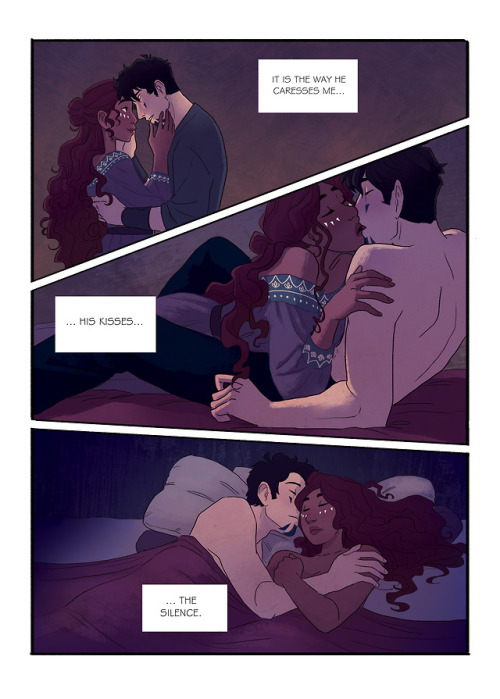
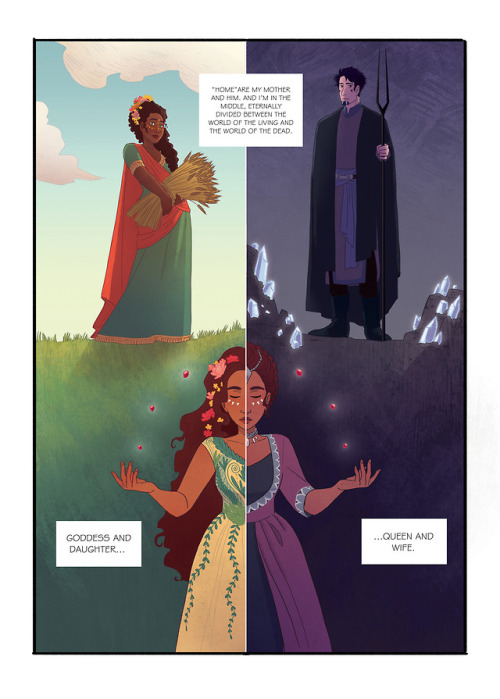
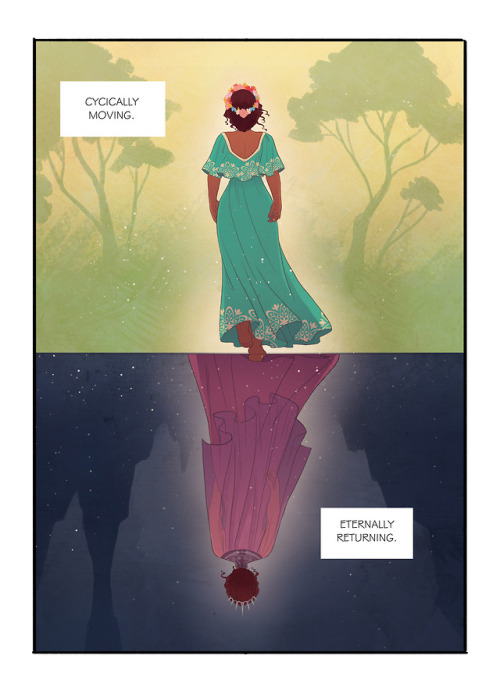
A short story I wrote this summer.
Some questions for your OC
What secret is your character keeping and why?
What is your character's greatest regret and how has it shaped their life?
How does your character react under extreme stress?
What would make your character tell a lie?
What is your character's biggest vulnerability?
What personal philosophy or mantra does your character live by?
What is your character most proud of?
What does your character value most in their friendships?
What kind of relationship does your character have with their family?
What goals does your character have for the next five years?
What does your character do to relax?
How does your character change when they are alone?
What kind of first impression does your character usually make?
What does your character think about before falling asleep at night?
What is your character most sensitive about regarding criticism?
do you have any advice for younger / newere writers? you write so much and you're very skilled! i'm inspired by you
Aww thanks! Maybe I write a bit too much ahaha.
Well, idrk what you’re searching advice for so I will give general tips.
Before writing:
Do your research. Not only about the subject, but if there’s people out there who have also thought about the idea and have a tag for it.
Set a goal. I suck at this myself, but having a not-rigid word count goal (with timer if it makes you feel more motivated) really get your gears going. There’s a few pages that make it more entertaining too!
Warm up Drabbles. Nothing better than writing something adjacent to what you really want to write just to warm up and get a bit more creative so you hit the zone quicker.
This is optional but if you have time, make a page for your characters and setting. Like a reference page so you don’t go write someone is 160 cm when you have already said they’re 178.
While writing:
Limit your editing. It’s tempting to correct in the moment, (more if you’re unsure about grammar) but sometimes while fixing something you lose your pace and in the worst cases, forget where you were going. Editing can come later.
If you’re gonna have CW at the top, highlight the key words so it’s easier to go through it later.
After writing:
Don’t delete your scrapped ideas. You don’t know when you might wanna use that idea, so even if it’s never used having an scrap document for them is great.
If you didn’t like the end product altogether, it’s fine to put it aside for a while and come back to it later to see if it really should be abandoned in the scrap document or tossed away. Sometimes a little bit of time makes the errors look less severe and fixable and the good things to pop out more. Let it brew!
Pass your text through a beta reader and a program that allows you to correct your grammar and spot typos.
To gain attention:
Quick note here, don’t get discouraged if you don’t receive millions of likes in your first chapter. Sometimes it takes two projects or more to get traction. Keep going regardless of numbers! They don’t dictate how good you are!
Interact with others. Slide into inboxes, participate in ask and tag games, reblog other people’s fics, make collabs. most people are cool with being tagged in games even if you’re not mutuales with them so don’t be shy! Although, Don’t just talk to people to use their following.
Take part in writing/drawing challenges. July has the @whumpmasinjuly event with a prompt list, as there is events like the month of writers, nanowrimo, whumptober, etc.
Keep writing and explore other ideas besides your comfort zone. This started as a whump writing blog, but evolved into positivity, some art and writing (even occasional thoughts and poetry) The variety lends itself to grow your range of public and to expand your creative library.
Promote yourself. Shamelessly self reblog your favorite fics, or just reblog it for the timezone difference. You’re proud of what you wrote and I’m proud of you for writing it, but sometimes tumblr sucks and I won’t see it immediately. So don’t be afraid of reblogging your own things!
Make your own events and ask games. DTIYS, requests, giveaways when you hit a follower milestone. If you have the time for it and have fun doing it, go for it!
This is my personal opinion, but having visuals for your story such as mood boards, picrews, illustrations, etc. Makes me more interested in a story. It’s also an easy way to present your characters to your readers.
Have fun. It’s noticeable when an author is having fun writing it and when it feels like a chore. I’m not telling you to absolutely love it, just to trust in yourself and what you’re doing a bit. If it doesn’t feel right, revision it. If you can’t find it, hand it to someone and ask for their opinion. Not having fun doing what you love hurts like a bitch, and it just rubs salt in the wound when it flops or you can’t stand reading through it. So, explore ideas, maybe go back to your comfort to come back to the new a bit less scared. Or maybe find new inspirations so you can go rush and add new stuff and weed out what doesn’t seem right.
Overall that’s it I think. @ashintheairlikesnow has a great tag for new writers in her blog so I advice to check that out and ask more people. @thewritershandbook is also a good resource place!
Good luck anon! I’ll be cheering on you.
Hey, help me please. How do you write description in your novels? Not a character one, surrounding ones. How do you describe from 3 POV , the background of the novel?
5 Tips for Writing Great Descriptions
Hi there! Thanks for writing. I talk at length about this in my book The Complete Guide to Self-Editing for Fiction Writers (See Chapter 4 / “Building Your Story World,” Chapter 16 / Setting the Scene, and Chapter 21 / “Choosing the Right Details” for the majority of the discussion about description, but it’s peppered throughout), so I’ll just give a brief rundown here. :)
Tip #1: Use concrete, sensory details
That means describing, with precision, a detail you can see/hear/touch/taste/smell. Avoid using vague words that are hard to visualize or sense, like “the house was ugly” or “the weather was bad.” Instead, choose a sensory detail (or two) for your descriptions, for example “the house was a wretched shade of salmon pink” or “the wind was blowing I could taste dust in my mouth.”
Tip #2: Try not to over- or under-use descriptions
It’s common for beginning writers to either use no description, or go completely overboard. I give examples of both in my book. While there’s no hard rule about how much description is too little or too much (it depends a lot on the particular story, genre, and the writer’s style), I personally like to include around 4-5 sensory details per page.
The idea is to give the reader a solid sense of where they are without going on and on, making them want to skim over as you carry on for paragraphs about the smell and texture of a doily.
Tip #3: Use more description during important parts of the story
Description draws your readers attention to what you’re describing. Use that to your advantage. If that doily contains a blood stain that’s a pivotal clue in your murder mystery, by all means spend three sentences describing the particular color red of the blood or the weird smell it emits. Where you linger, the reader will linger.
Tip #4: Use description to set the scene
Use more description at the beginning of a new scene, or anytime the location of your story changes. I talk about this in the section on transitions in my book. Summary gets a bad reputation in fiction, but these transitional paragraphs are the perfect time to paint the scene with sensory details about your character’s surroundings.
Tip #5: Pay attention to “camera movement”
One common thing I see in writer’s manuscripts is what I call “jerky camera movement.” Here’s an example:
Jesse pulled into the driveway of the suspect’s mansion around noon. A white, floppy dog barked ferociously in the window. It was a warm, sweltering day. Jesse looked down and realized her shoe was untied. The house had three large columns in front, each wrapped with a gawdy red bow.
In this example, the “camera” moves from the driveway, to the dog in the window, to the “day,” to Jesse’s shoe, to the outside of the house. If that was your head, looking around the scene, you’d get dizzy pretty fast. Here’s a smoother movement, starting wide and focusing in on Jesse’s untied shoe.
It was a warm, sweltering day. Jesse pulled into the driveway of the suspect’s mansion around noon. The house had three large columns in front, each wrapped with a gawdy red bow. In the window, a white, floppy dog barked ferociously. As Jesse approached the door, she looked down and realized her shoe was untied.
These aren’t perfect examples because I’ve dashed them off just now, but you get the idea :) Try not to make your reader seasick by making them look all over the scene (unless you’re trying to achieve that effect, for example, in a scene where your protagonist is drunk or discombobulated).
Hope this helps!
-
 alisannagordn liked this · 1 week ago
alisannagordn liked this · 1 week ago -
 superredvelvetcupcakesworld reblogged this · 1 month ago
superredvelvetcupcakesworld reblogged this · 1 month ago -
 writtingrubberducky liked this · 4 months ago
writtingrubberducky liked this · 4 months ago -
 deanwinchesterswitch liked this · 5 months ago
deanwinchesterswitch liked this · 5 months ago -
 estellaelysian liked this · 5 months ago
estellaelysian liked this · 5 months ago -
 star-of-the-sea-ta reblogged this · 6 months ago
star-of-the-sea-ta reblogged this · 6 months ago -
 spontaneouslouis liked this · 6 months ago
spontaneouslouis liked this · 6 months ago -
 printucesse liked this · 8 months ago
printucesse liked this · 8 months ago -
 magic-poppets reblogged this · 9 months ago
magic-poppets reblogged this · 9 months ago -
 duskwyvern liked this · 10 months ago
duskwyvern liked this · 10 months ago -
 anbu-fox liked this · 11 months ago
anbu-fox liked this · 11 months ago -
 jaguarbitez liked this · 11 months ago
jaguarbitez liked this · 11 months ago -
 shards-of-seashell liked this · 1 year ago
shards-of-seashell liked this · 1 year ago -
 hell-no-elo liked this · 1 year ago
hell-no-elo liked this · 1 year ago -
 romysradio liked this · 1 year ago
romysradio liked this · 1 year ago -
 crushallofthetears liked this · 1 year ago
crushallofthetears liked this · 1 year ago -
 irrelevenjpg liked this · 1 year ago
irrelevenjpg liked this · 1 year ago -
 duskjake liked this · 1 year ago
duskjake liked this · 1 year ago -
 starssoblue liked this · 1 year ago
starssoblue liked this · 1 year ago -
 coldstrawberrytrash reblogged this · 1 year ago
coldstrawberrytrash reblogged this · 1 year ago -
 writingneko reblogged this · 1 year ago
writingneko reblogged this · 1 year ago -
 nerdyneko265 liked this · 1 year ago
nerdyneko265 liked this · 1 year ago -
 maybemerlina reblogged this · 1 year ago
maybemerlina reblogged this · 1 year ago -
 maybemerlina liked this · 1 year ago
maybemerlina liked this · 1 year ago -
 tangledlichen reblogged this · 1 year ago
tangledlichen reblogged this · 1 year ago -
 tangledlichen liked this · 1 year ago
tangledlichen liked this · 1 year ago -
 first-light-of-the-library reblogged this · 1 year ago
first-light-of-the-library reblogged this · 1 year ago -
 first-light-of-the-library liked this · 1 year ago
first-light-of-the-library liked this · 1 year ago -
 lamaenthel reblogged this · 1 year ago
lamaenthel reblogged this · 1 year ago -
 moonietimes liked this · 1 year ago
moonietimes liked this · 1 year ago -
 oa-trance liked this · 1 year ago
oa-trance liked this · 1 year ago -
 bioshockzelda17-blog liked this · 1 year ago
bioshockzelda17-blog liked this · 1 year ago -
 minhosbitterriver liked this · 1 year ago
minhosbitterriver liked this · 1 year ago -
 leomablr liked this · 1 year ago
leomablr liked this · 1 year ago -
 coldstrawberrytrash liked this · 1 year ago
coldstrawberrytrash liked this · 1 year ago -
 sirdeath41412 liked this · 1 year ago
sirdeath41412 liked this · 1 year ago -
 maqias liked this · 1 year ago
maqias liked this · 1 year ago -
 mariecrystalstar liked this · 1 year ago
mariecrystalstar liked this · 1 year ago -
 queenofcrazy27 reblogged this · 1 year ago
queenofcrazy27 reblogged this · 1 year ago -
 queenofcrazy27 reblogged this · 1 year ago
queenofcrazy27 reblogged this · 1 year ago -
 queenofcrazy27 reblogged this · 1 year ago
queenofcrazy27 reblogged this · 1 year ago -
 queenofcrazy27 reblogged this · 1 year ago
queenofcrazy27 reblogged this · 1 year ago -
 queenofcrazy27 reblogged this · 1 year ago
queenofcrazy27 reblogged this · 1 year ago -
 nebcompsirrollra liked this · 1 year ago
nebcompsirrollra liked this · 1 year ago -
 fabledfools liked this · 1 year ago
fabledfools liked this · 1 year ago
